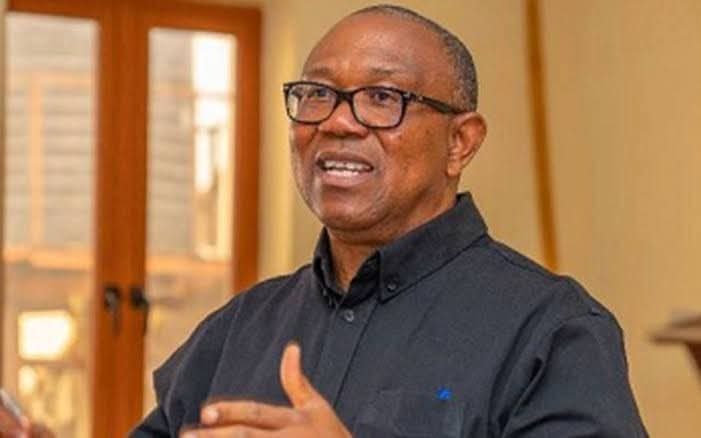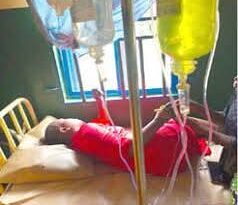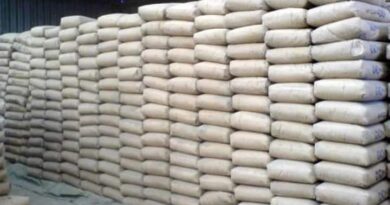Tinubu has borrowed more in two years than three past presidents combined together—Peter Obi
Labour Party’s 2023 presidential candidate, Peter Obi, has issued a scathing critique of President Bola Ahmed Tinubu’s administration, accusing it of pushing Nigerian democracy into a state of decline.
In a statement released Thursday titled “Democracy in Decline: Reflecting on Two Years of Tinubu’s Governance”, Obi assessed the administration’s performance across various sectors and found it gravely wanting.
Obi, a former governor of Anambra State, said a thorough evaluation of the past two years under Tinubu points to significant governance failures.
He accused the Tinubu-led All Progressives Congress (APC) government of falling short on critical indicators such as corruption, prudence, economic management, insecurity, and democratic practice.
Obi expressed concern over the President’s frequent foreign travels, suggesting that Tinubu should instead prioritize visiting Nigeria’s 36 states.
“Mr. President you have already made over 30 international trips, spending nearly 150 days abroad.”
“If you tour Nigeria’s 36 states and dedicate just 2 days to tour each state, it would take only 72 days for you to do so, less than half the time you have already spent in other areas of the country on foreign trips. You need to go around the country to see,” Obi advised.
Reflecting on the health of Nigeria’s democracy, Obi urged Tinubu to take a cue from past presidents.
“To emulate late President Umaru Yar’Adua, who was honest enough to admit the process that brought him into office was wrong and not sufficiently credible,” Obi said, calling on the President to act decisively to safeguard the nation’s democracy.
He also referenced former President Goodluck Jonathan’s concession of defeat as a significant democratic gesture.
“He saved the democracy by accepting defeat even before the election result, announced in the dark.”
Obi described the current era as one dominated by impunity and lawlessness.
“We must end this troubling governance era that is filled with impunity, state capture, and absolute disregard for the rule of law and the checks and balances required of any worthwhile democracy,” he said.
According to Obi, the country no longer meets the criteria for a functioning democracy.
“In our present state, our dear country, Nigeria, cannot be justly classified as a democratic country. The vital indications of democracy are noticeably absent. Some do not even exist.”
He added “Democracy is said to be ‘a government of the people, by the people, and for the people,’ yet none of these three measures exist in our democracy today.”
Obi accused the administration of celebrating mediocrity and misleading the public.
“The government today, rather than show genuine accountability and measurable progress, focuses on manipulating narratives, gaslighting the public, shifting blame and weaponizing governance.”
He painted a grim picture of current conditions, citing deteriorating security, education, and healthcare.
“Nigerians live in a worsening and worrisome insecurity, widespread corruption, hunger, and general despondency.”
“There are no clear benchmarks for measuring tangible development, as we continue to witness the collapse of key indicators, like education, healthcare, and poverty alleviation, which are presently measuring national progress.”
“Our country today can best be described as a nation declining fast in all its facets. The security of lives and property has worsened, and the rule of law is virtually non-existent.”
Providing economic data, Obi noted a dramatic fall in GDP and income levels.
“On May 29th, 2023, when the organisation was sworn into office, Nigeria’s Gross Domestic Product (GDP) stood at $364 billion. As of today, it has declined to $188 billion, a decline of almost fifty per cent (50%).”
“Nigeria’s GDP per capita was $1,640 as of May 2023, but today it has dropped drastically to about $835, a devastating decline of about 50%.”
He added that poverty is deepening under the current administration.
“Nigerians living in multi-dimensional poverty increased from 38.9% to 54% within this period, with about 129 million Nigerians now living below the poverty line.”
“The World Bank reported recently that 75% of Nigerians in rural areas now live in poverty as of 2025, and even more than previously recorded in the urban areas.”
Obi lamented Nigeria’s education crisis:
“Today, more than 18.3 million Nigerian children are out of school, the highest number in the world. The quality of education in Nigeria is also deteriorating rapidly.”
“Many of our children are being taught sciences without any science labs and computer studies without any computers. Students are now writing WAEC and other national exams in the dark, relying on candles. There are now even glitches in their exams.”
On healthcare, he shared personal observations:
“The National Primary Health Care Development Agency decried that less than 20% of over 30,000 Primary Health Care Centres across the nation are fully functional.”
“I have even, recently visited some Health centres where delivery rooms were without toilets. The United Nations recently reported Nigeria as the world’s worst country to give birth, with one death recorded every seven minutes.”
Obi also raised alarms about the collapse of local businesses:
“Within the past two years, approximately 7 million Small and Medium Enterprises (SMEs) shut down across Nigeria. Over 80 manufacturing companies have permanently closed their operations.”
“Funding costs, including the cost of raw materials and energy, have surged to an incredible level, forcing these manufacturers to shut down.”
“Over 15 major multinationals (including GlaxoSmithKline, Diageo, Procter & Gamble, and Shoprite) have exited Nigeria due to the harsh operating environment.”
The hunger crisis, he noted, has worsened dramatically:
“Based on the Global Hunger Index (GHI) report, Nigeria’s hunger situation has taken a hit, as we are now one of the hungriest countries in the world. Millions can no longer afford food due to the high costs of food and nonexistent disposable income.”
He linked the worsening national mood to mental health issues:
“Our national population is experiencing a mental health crisis as the mental health and stress levels in this period have increased drastically. Nigeria is now one of the top three (3) most stressful organisations in the world.”
“Fifty-nine per cent of the organisation’s population is under daily stress. Mental health experts and advocates have warned that the present situation in Nigeria is having extremely adverse effects on the population as it contributes to anger, anxiety, and depression levels in the country.”
Obi also criticised the government’s borrowing record, which he says far exceeds those of previous administrations:
“Despite the trillions of naira purportedly saved from the removal of fuel subsidy (a policy initially justified as a means to curb borrowing), this government has, within two years, borrowed far more money than the administrations of President Umaru Yar’Adua, President Goodluck Jonathan, and President Muhammadu Buhari combined.”
He added “Today, Nigeria’s overall public debt is estimated at close to N188 trillion. Nigerians were informed that these borrowed funds would be allocated to critical sectors of development.”
“Still, there has been no significant improvement in education, healthcare, or poverty alleviation; critical sectors that are vitally important for national development.”
On the issue of corruption, Obi didn’t hold back:
“Brazen Corruption is at its worst under this administration. Nigeria has now become a crime scene. Now our national budget is routinely inflated and padded without consequences.”
“One of the most glaring manifestations of this is the extensive padding of the 2025 national budget. BudgIT revealed that about N7 trillion was questionably inserted by the National Assembly. These figures suggest a pattern of inflated costs and misappropriation of funds.”





